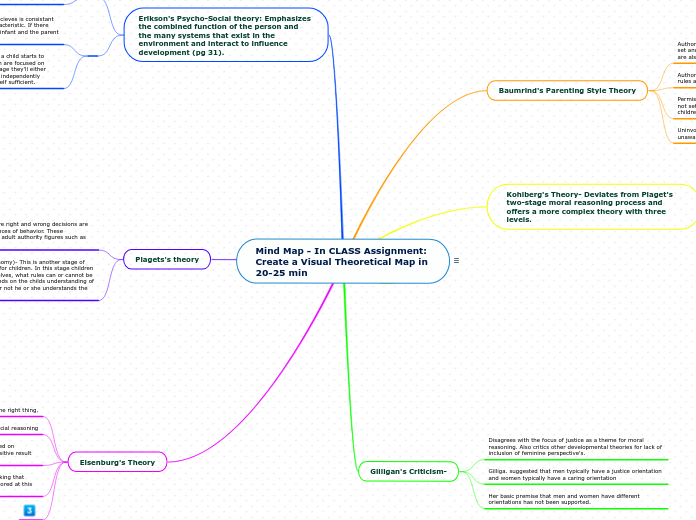
Authoritative- limits are set, rules are enforced, but parents are flexible and understanding :)
Erickson explains there is a predetermined process to personality development. There is 8 stages in which a person develops their personality.
Trust vs. Mistrust - if the care an infant recieves is consistant and reliable they will develop a trust characteristic. If there isn't a good care connection between the infant and the parent mistrust would develop.
Autonomy vs. shame/doubt- in this stage a child starts to develop a sense of independence. children are focused on control over their physical skills. in this stage they'll either start to gain confidence in their ability to independently manuver or they will have trouble being self sufficient.
Moral realism- children believe right and wrong decisions are determined by the consequences of behavior. These consequences are laid out by adult authority figures such as parents or teachers.
Morality of cooperation(autonomy)- This is another stage of the decision making process for children. In this stage children are able to decide for themselves, what rules can or cannot be broken. This ultimately depends on the childs understanding of consequences and whether or not he or she understands the outcome.
Authoritative- (High Responsiveness, High Control): Limits are set and rules are enforced. High emotional connection, parents are also flexible.
Authoritarian-(Low Resposiveness, High Control): Limits and rules are enforced, and emotional connection is lacking. Strict.
Permissive-(High Responsiveness, Low Control): Parents do not set or enforce rules, Parents have close connections to children.
Uninvolved-( Low Responsiveness, Low Control): Parents are unaware of their Childs lives.
Preconventional level- An ego centric, self interested view of right and wrong. At the preconventional level, little consideration of societal standards are made. Its a personal input of decision making and is a result of experience.
Egocentrism- A focus on the self with little consideration for others perspectives. Most decision making from kids starts with acknowledgement of consequences
Conventional Level- The consideration of common social views are adopted by children at this stage. Making decisions based off of society's standards comes to effect here.
"Cheating is wrong because my mother says your only cheating yourself and should do your own work" is an example of how a child is considering and enforcing his mothers view of right and wrong.
Disagrees with the focus of justice as a theme for moral reasoning. Also critics other developmental theories for lack of inclusion of feminine perspective's.
Gilliga. suggested that men typically have a justice orientation and women typically have a caring orientation
Her basic premise that men and women have different orientations has not been supported.
Stresses positive justice, why we do the right thing.
Eisenburg's 5 levels of prosocial reasoning
- Self focused Orientation, decision making focused on complimenting future self interests. Is there a positive result for this decision?
- "needs orientation", in other words decision making that fulfills the needs of others. Self interested are ignored at this level.